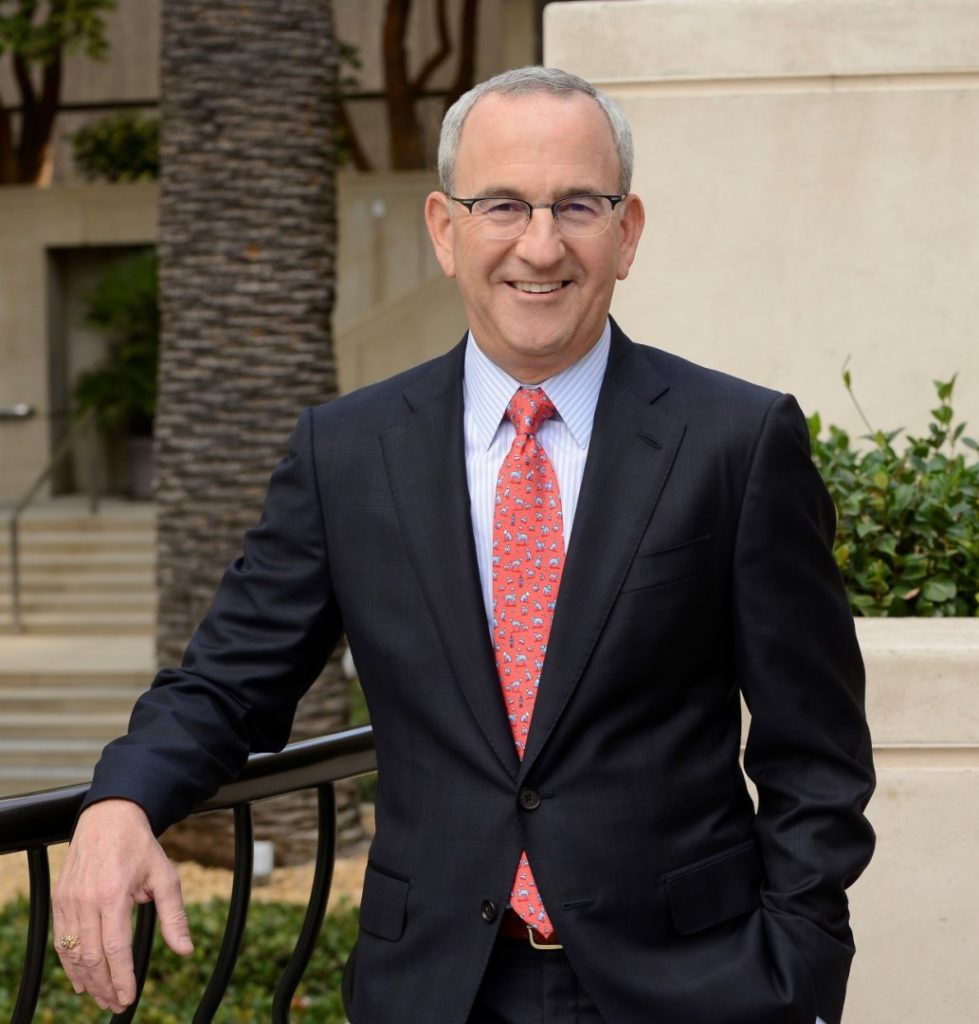Rising inflation, interest rates and uncertainty are roiling the M&A market like everything else, and mid-market CEOs and company owners are looking for guidance for decisions about buying and selling amid more tentativeness than in a decade — at the same time that newly raised funds seeking a home are at record highs.
But if this is the beginning of a new cycle, Lloyd Greif has seen it before. He’s founder, president and CEO of Greif & Co., a middle-market investment bank that engineers mergers and acquisitions between $25 million and $2 billion in enterprise value, as well as equity and debt financings of more than $10 million, exclusively for entrepreneurially owned and operated growth companies.

Greif founded his Los Angeles-based enterprise in 1992 following a successful, decade-long career as vice chairman of Sutro & Co. At the helm of his own company, Greif has steered dozens of deals. They include recent transactions such as a $53 million capital financing for California-based Lugano Diamonds & Jewelry as well as the sale of California-based Takeya USA Corp. to Japan-based Takeya Chemical Industry Co. Over the decades, significant Greif & Co. transactions have included Samsung Electronics’ purchase of kitchen-appliance maker Dacor and Albertson’s purchase of the specialty food retailer Bristol Farms.
“Deals will take longer to close now,” said Greif, who endowed the Lloyd Greif Center for Entrepreneurial Studies at the University of Southern California’s Marshall School of Business in 1997. “On January 1, it looked like a sure thing that M&A volume would be higher this year, but here in April, I think it’ll be a down year in the number of transactions and their dollar value. Multibillion-dollar deals will be fewer as well.”
Greif shared further insights into today’s mid-market M&A environment, and offered advice to both buyers and sellers, in an interview with StrategicCFO360.com:
Let’s start with the elephant — or black swan — in the room: the war in Ukraine. Will that have a direct effect on the M&A market?
The war is a wild card. Economic sanctions [on Russia] have an impact that inevitably will drive up anything that is derivative from oil, such as plastic and resin costs. That will have an upward influence on inflation. Inflation, in turn, is going to drive up the cost of capital, and credit costs.
So you’ve clearly already seen the volatility in the stock market, and we’ve seen a slowdown in IPO activity — you can almost hear a pin drop there. Why is that relevant? Because public and private markets do follow in lockstep from a valuation standpoint; private-sector M&A valuations correlate to public-company valuations. And if public markets move down, you’d expect that what had been a sellers’ [private-company] market might for the first time in the last 12 months see some downward pressure on valuations on price.
So what should mid-market players do?
There’s some risk in sitting on the sidelines. Inflation and the cost of capital are likely to be even higher six months from now. The elections are a factor, too: If the GOP gains ground, one should not have to be concerned about a capital-gains tax hike. Otherwise, it’s almost a surety that one would take place on January 1, even retroactively.
So, people shouldn’t be on the sidelines about doing a deal now. Time isn’t their friend.
How are all these new dynamics affecting the types of deals you’re seeing?
There’s a flight to quality for a lot of buyers. That will increase the likelihood of private-equity buyers winning auctions, because a lot of public companies might want to sit on their cash and be a little more conservative. They recognize there could be some liquidity challenges in the early days of the war that could stretch beyond Ukraine quite easily, sort of like the liquidity challenges at the beginning of the pandemic. So some CEOs, particularly strategic buyers, will pull in their horns a bit.
But PE has had record fundraising in the last years, and new fundraising is still coming out of the ground like weeds. They’ve raised capital they want to deploy; they invest funds in the first three years and then, in the next couple of years, focus on running those businesses, and in year five or six look to be divesting. Because of all the fundraising that has occurred recently, there’s capital just looking for a home.
The downstroke on that is the impact on global capital markets from a debt standpoint. They’re not able to get the same amount of leverage because banks are being more conservative because of what might happen to the global economy. So PE firms could have somewhat less liquidity in the debt side of global markets, which could cause them to over-equitize, or bridge a deal to get it done, and then backfill with debt. Otherwise, something has to give, and that would be the price. They don’t like uncertainty any more than public firms do.
Also, there are foreign buyers. But I think there will be a decline in cross-border deals, with strategic buyers based in Europe less likely to be adventuresome in the U.S. for the time being. It’s a more stable environment here, but European companies will be less into M&A and more about making sure their own houses are in order during perilous times.
What if you’re a seller in the market?
He who hesitates is lost. I don’t think this is the time to be sitting on the sidelines. If you’re thinking about harvesting your business in the next two or three years, I would accelerate it into 2022 for these reasons: the potential tax hike, a higher cost of capital next year, and the impact from higher commodity costs that will impact a lot of industries. And if the war pushes us into a recession, that will reverberate.
What happened during Covid was that there were winners and losers, depending on the industry you were in. Now we’re looking at the war and a higher inflationary environment and a potential recession risk. So consumer staples such as food and beverages are more likely to be resilient as they are during all times of economic crisis. Healthcare will continue to be solid, and technology will continue to be solid.
War could benefit the aerospace and defense industry; they were hard hit by Covid because of what happened to airlines and travel but each company that now makes jetliners also makes military aircraft. You’ve also got NATO countries increasing their defense spending, and the arms flowing into Ukraine and Russia are stepping up this spending.
What’s your outlook for startups in this environment?
Seed capital typically comes from angels, and there’s been a lot of wealth created in the last few years. So that aspect of startups will be well-financed. If you’re talking about Series A, B or C institutional VC rounds, there’s money for that, too. But it will be selective, among industry winners and losers. A rising tide lifts all boats, but there’s not a rising tide right now, so buyers and investors both will be much more discriminating before pulling the trigger on a deal. You’ll see increasing due diligence and a higher percentage of people [hesitating] than blindly throwing cash after the next unicorn.








